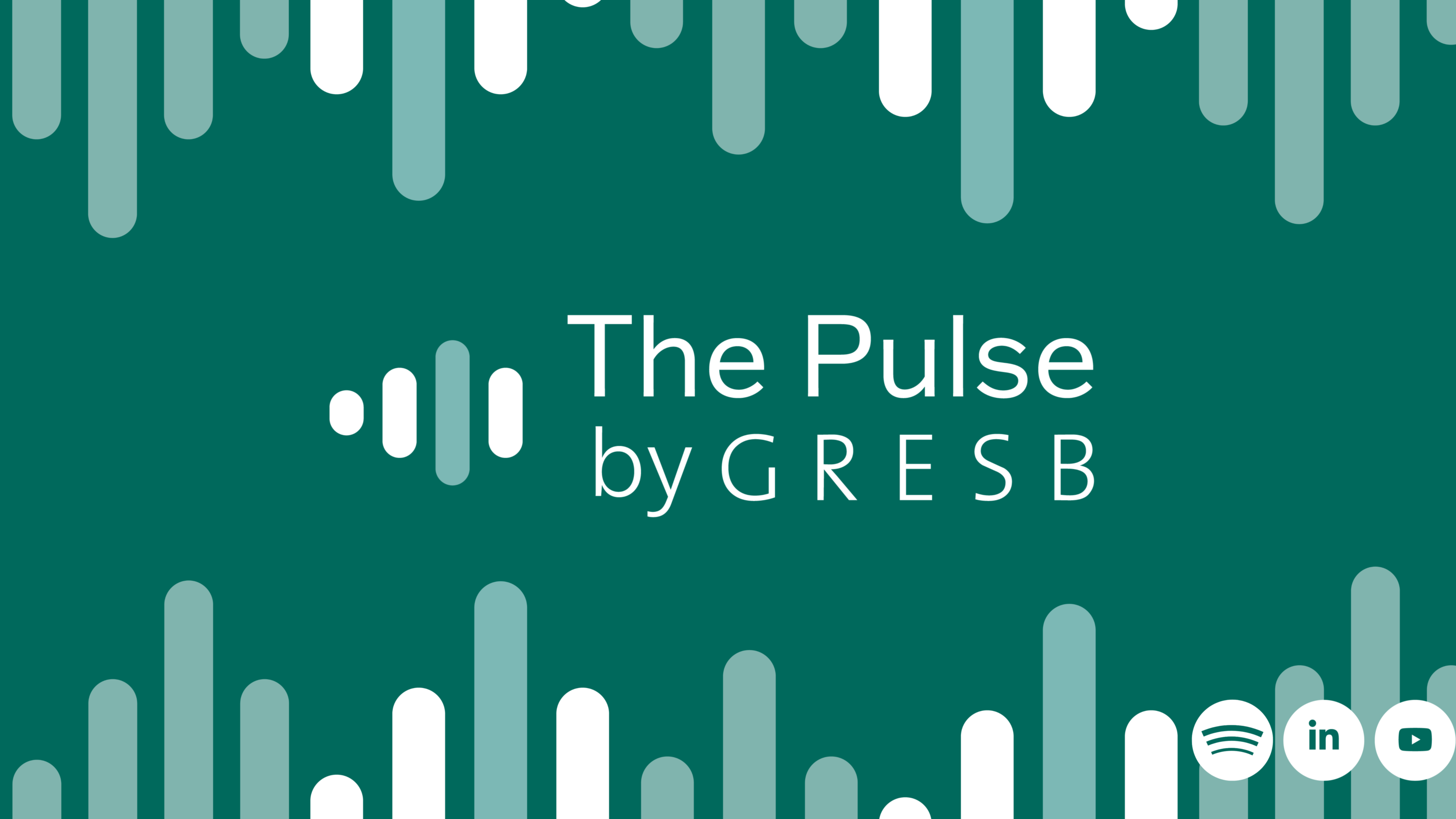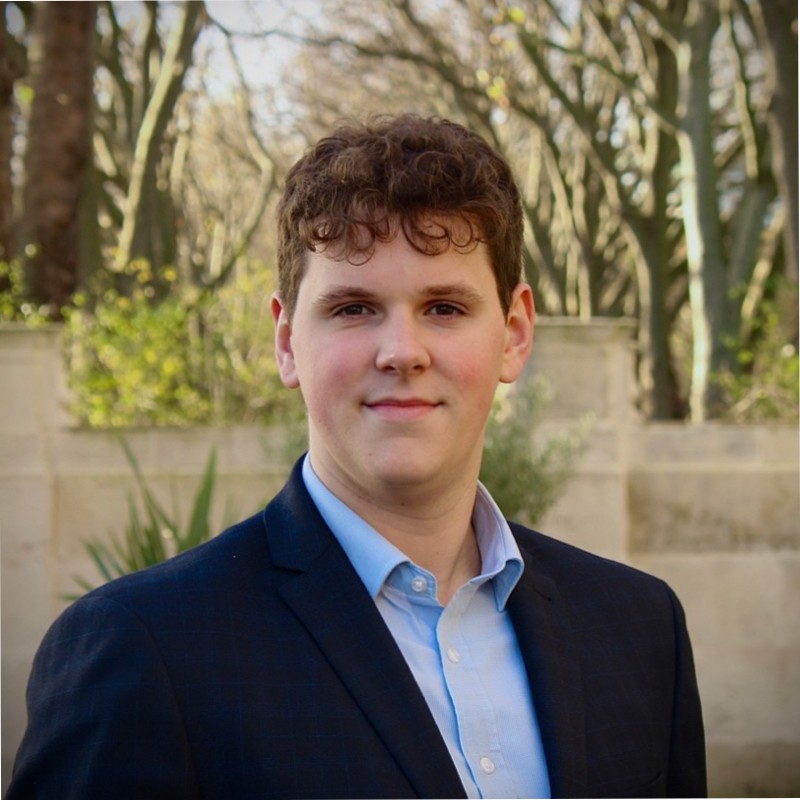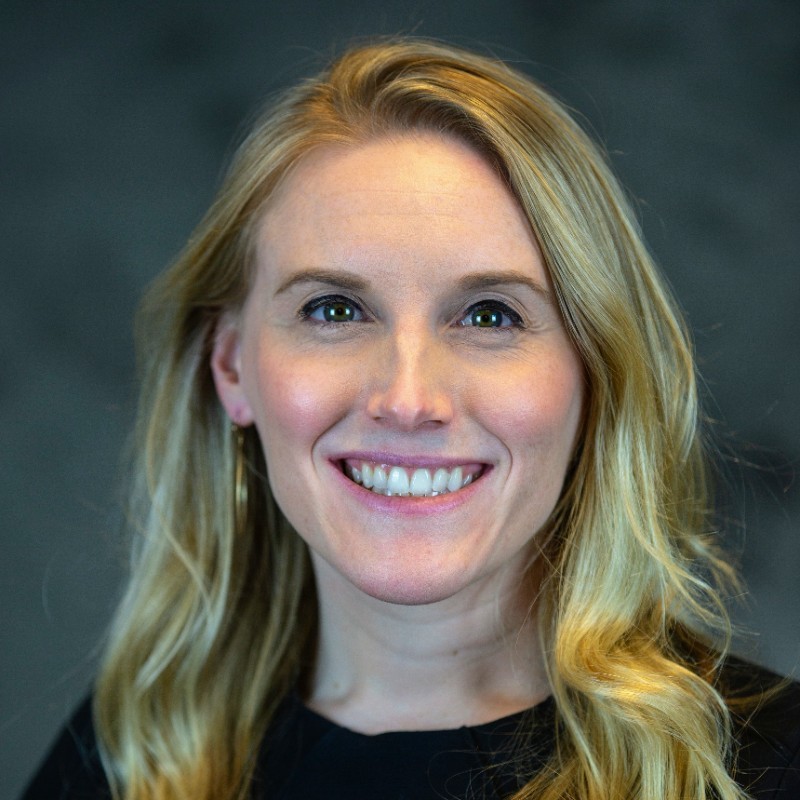
The Pulse by GRESB
The Pulse by GRESB is an insightful content series featuring the GRESB team, partners, GRESB Foundation members, and other experts. Each episode focuses on an important topic related to either GRESB, ESG issues within real assets industry, decarbonization efforts, or the wider market.
- Watch on Youtube
- Listen on Spotify
- Listen on Apple Podcasts
The accreditation edge: GRESB AP explained
In this episode of The Pulse by GRESB, we bring you a conversation about the GRESB Accredited Professional program, launched in 2024. Tune in to hear about the experiences of GRESB Accredited Professionals as they discuss the value the AP credential can add to your projects and organization, the importance of accreditation for advancing ESG objectives in the real estate industry, its rising relevance in the APAC region, and more. Watch the episode below, featuring:
Transcript
Can’t listen? Read the full transcript below. Please note that edits have been made for readability.
Reid: Welcome to The Pulse by GRESB, our interview series where we discuss important issues in sustainable real assets from GRESB and ESG to the wider industry. Today, I’m your host, Reid Morgan, Manager of Member Relations Americas at GRESB, and we’re going to be talking about the GRESB Accredited Professional Program, or the GRESB AP. I’m excited to be joined by GRESB AP Theo Bibby, Senior Consultant at ESG Solutions and the first ever GRESB AP. Welcome, Theo.
Theo: Hi Reid, thanks for the invite. It’s a pleasure to be here.
Reid: Yeah, good to have you. Why don’t we jump in with our first question. We’d love to hear a little bit about what motivated you to pursue becoming a GRESB Accredited Professional.
Theo: The GRESB AP is something that we’ve had on our radar, in terms of something we’ve wanted, for a while now. We have a lot of sort of technical expertise at our company, that includes a lot of specifications or criteria where you do have like an AP program or some form of accreditation. So it’s something we feel GRESB has been potentially missing, and it’s great that the gap has now been filled in that space. And from a personal perspective, I’ve been doing GRESB for four years now. This is my fourth cycle. I’ve been involved in every part of the process, from collecting information for GRESB, to submitting assessments, to receiving and analyzing the results, and also implementing some of the measures to then boost scoring for future years. So it was nice to do a program both personally, because it allowed me to reflect on the years that I’ve had in one consolidated scheme. And it also allowed me to demonstrate my expertise that I’ve built up over this period of time.
Reid: That’s great, Theo. So it sounds like you’re pretty well versed in the GRESB ecosystem and completing the GRESB assessment. So tell me a little bit how this AP credential has added value to your projects or your organization.
Theo: It’s added value in three different ways, for the organization. On a first basis, it’s been almost repaying sort of some of our clients in terms of demonstrating that when they’ve gone with us and we’ve said, we can help you with this process, it then gives us the opportunity to say, you are correct in doing so, we have now become accredited. Not only that, we are the first ones to become accredited. So it’s really a good way of showing back to them, as well as the work we do, that we actually have the expertise to back it up through the qualification scheme. And it also allows us to differentiate ourself from a lot of the other GRESB partners where we focus our growth and our efforts on our expertise, a lot of our technical background, and a very personal, bespoke touch that we give to our clients. Being able to back up that niche approach with an accreditation is a really great strength. And then lastly, for when we’re trying to grow the team to support additional clients, what it allows our new staff is something to work towards as well. It helps to structure their own personal development while also adding confidence to our services at the same time.
Reid: Yeah, that’s great. Nice touch on a few different aspects of both your personal work and the organization as a whole. Last question for you, Theo. Why do you think attaining a credential like the GRESB AP is important? And as you zoom out a little bit here, why do we think this is important for advancing ESG objectives in the real estate industry as a whole?
Theo: Yeah. So I think at the moment we’re in a period where there’s so much change going on, so many new different regulatory frameworks at different levels. I’m based in the UK where we just had the new election results, and from that, we might then have a new structure to ESG at the organization level.
So in the industry, a lot of the time, even though professionals have been doing ESG sustainability or elements within it for a number of years, in terms of experience with specific frameworks, specific tools, everyone’s on a fairly similar playing field. For example, you’ve got CSRD that’s come out in the last couple of years for sustainability reporting. People only really have been doing that for two years, as long as it’s come out. I think there’s a lot of uncertainty and a lot of room for demonstrating expertise and competency in these frameworks, that are driving the industry. And so now more than ever, it’s really quite key to be able to differentiate who is claiming to have knowledge of this industry to those who are specialists in the individual frameworks and standards that are placed within it.
Reid: Great, Theo. Thank you so much. We’ve really appreciated having you here on the podcast.
Theo: Thank you very much, Reid.
Reid: Now I’m joined by GRESB AP Liang Liao from Galaxy Academy representing the APAC region.
Liang: Thanks for having me.
Reid: Absolutely. So let’s get started. In what ways did the preparation process and achieving GRESB AP status enhance your understanding of the GRESB assessment?
Liang: Through the preparation and study for the GRESB AP exam, I had the opportunity to comprehensively learn about GRESB frameworks and deeply understand how quantitative ESG rating tools can guide the sustainable investments and promote the long term value of real estate. While I had previously used GRESB ratings, I had not delved deeply into their intricacies.
The exam and the study process provided me with a clearer understanding of several key aspects. For example, why GRESB is created, why and how investors utilize GRESB, and why and how asset managers participate in GRESB assessments. This is going to be super useful for helping me set up solid ESG indicators and management systems and put effective ESG operations in place.
Reid: That’s great to hear. So, it’s not just about what the GRESB assessment is, it’s how and why. And that context really helps with some foundation building. Great. So let me go on to the next question. Then how do you expect your AP status to impact your professional work? And maybe you could tell us a little more about the importance of credentials, specifically in the APAC region.
Liang: So take China for example. China is entering an era of mandatory regulation for sustainable development disclosures in 2024. Increasingly, companies will all need to enhance their ESG performance and do their ESG reporting now.
Real estate managers must understand their ESG demand and provide building service accordingly. It has been very clear in first tier cities in China, leading companies all have set up their ESG requirements in the site selection criteria. Therefore, we have seen for more than 10 years that asset managers that excel in sustainable development and operations will inevitably attract high quality clients, achieve better cash flow performance, and gain more attention from investors.
However, the ESG capacity in practice in China are just beginning to take shape and still are relatively immature compared to Europe. The markets require more professionals and trainings. Current surveys showed that the top challenge for companies transitioning to ESG is the lack of professional talent.
GRESB is the most popular ESG rating system for real estate and infrastructure sectors globally. Professional certifications like GRESB AP help companies identify the right talent and provide the ESG skillset for professionals looking to develop their careers, no matter as developers, asset managers, property managers, or ESG dedicated professionals.
Reid: Thats’s great. So as the market evolves, it’s really critical to match that evolution with your knowledge. Alright, what kind of industry knowledge did you gain from taking the GRESB AP exam?
Liang: Actually, before taking the GRESB AP exam, I also took the CFA ESG Investing exam and participated in ESG Strategy Advisory and Sustainability Advisory Services for nearly 20 years. During my study of GRESB frameworks, I identified two important lines of thought. First, from the perspective of ESG investing, I understand how to effectively collect substantial ESG data to support investment strategies such as negative screening, positive screening, and integration strategies.
So I find GRESB organized a vast amount of ESG data at both asset level and company level. This will very much facilitate investors in formulating their strategies. And second, from the perspective of asset development and operations, I identified key materials ESG issues and understand how to develop and operate sustainable buildings now.
Reid: That’s really interesting to hear your perspective, especially as it compares to other certification schemes that you’ve been a part of. What further suggestions do you have for preparing for the GRESB AP exam?
Liang: Well, I would recommend that the study for the GRESB AP should not be limited to the GRESB Reference Guide or scoring document. It is essential to understand the purpose behind each scoring criterion, which ESG risk they address, and what management measures or technologies can be adopted to achieve these scores. For example, when studying the risk assessment aspect, it is important not only to understand the scoring criterion from GRESB, but also to consider actually what substantial risk the building may be exposed to during its daily operation.
Reid: That’s great, Liang. Thank you so much. We really appreciate you joining us on the show and sharing your insights from your experience with the GRESB AP.
Liang: Thank you very much.
Reid: I’m excited to be joined by GRESB AP Kelly Hagarty, ESG Director at Stok, representing the Americas region. Welcome, Kelly.
Kelly: Thanks so much for having me.
Reid: Well, great. Let’s jump into the questions. How has becoming a GRESB AP contributed to your professional development as an individual?
Kelly: Even after working on over a hundred GRESB submissions, I still learned a ton of new information from the GRESB AP exam and found a lot of resources I’d never seen before. And so that’s been really helpful for me. I get asked often from clients, random questions that require me to dig into all the resources, like the reference guide, scoring document.
And so it was really helpful to have the exam focus on questions like that that directed me to new resources, so I’m better prepared to answer those for clients and also direct them to some resources and share the knowledge of GRESB with them.
Reid: Wow, over a hundred submissions and still learning new things. That’s really crazy. For our next question, can you highlight any new practices you’ve implemented as a result of your GRESB AP knowledge?
Kelly: Sure. I would say not necessarily a new practice, but the exam really highlighted the importance of reading the guidance thoroughly and understanding all the resources that are available to you. One in particular that stuck out to me was the benchmark report, and how it’s been a great tool to use with clients to understand their performance as well as peer performance. And digging into the benchmark report, including, percent of peers that select a particular response, has been incredibly helpful in determining what to prioritize with clients, and understanding where the market values certain initiatives over others and where our client might be falling behind.
So, that was super helpful to see questions like that and be able to work through some of the benchmark questions a little bit more than I usually get to in my daily life with GRESB.
Reid: Yeah, there is so much to learn from a benchmark report. So many insights buried in there and learning how to read those and pull those insights out is a really critical skill. Our last question. What advice would you give to someone considering becoming a GRESB Accredited Professional?
Kelly: I would say take your time. Although it’s an open book test, it’s helpful to have a base understanding of the reference materials beforehand. Know where to search for answers. Get to know the reference guide, asset level spreadsheet, and scoring document beforehand. It’s helpful when you’re not getting timed.
I know you have 24 hours, but when you’re not getting timed, to kind of read through them at your leisure, understand what questions might look like in the GRESB submission, GRESB assessment, and, how GRESB is looking for you to answer those. That was really helpful for me having experience prior, and using those tools.
But also the GRESB website and the search function was incredibly helpful when I was going through this. I used that often and searched for quite a few documents, so understanding where you can go to search for certain things and know the landscape. I would also say you have 24 hours, so use it. I knew some of the answers right away, but I still dug in and took my time. I took about four hours because I was using this as a learning exercise. To read through all of the documents that I maybe haven’t seen before, or re-familiarize myself with ones that I have. I wasn’t just trying to rush through it, I was really trying to understand GRESB better. So, definitely take your time and use the 24 hours if you can.
Reid: That’s fantastic advice, Kelly. Thank you so much. We are thrilled to have had you here on the show.
Kelly: Thanks so much for having me. It’s been fun.
Reid: And with that, that’s about all the time we have for today’s episode of The Pulse. Thank you for taking the time to join me and sharing your insights. And to all those who’ve listened to this point, we’re constantly developing new content, and we’d love to hear from you regarding topics you’d like to hear about in future episodes. Leave a comment or get in touch with us at [email protected]. I’ve been your host, Reid Morgan. See you next time on The Pulse by GRESB.



